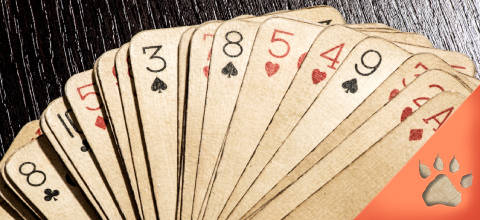
Splitting 8s in Blackjack
Blackjack is a game of chance and strategy. While luck plays a significant role in determining the outcome of each hand, employing specific strategies can enhance a player’s chances of success. One such blackjack strategy that has become a golden rule in blackjack and one that most experienced players swear by is ‘splitting 8s’.
Table of Content:
- Why Players Should Split 8s in Blackjack?
- How Does Splitting 8s Affect the Odds in Blackjack?
- When to Not Split 8s in Blackjack
- FAQs
The splitting of 8s in blackjack refers to a strategic move where players receive a pair of 8s and decide to split them into two separate blackjack hands. To split, the player places an additional bet equal to their original wager to cover the second hand.
Once the bets are placed, the dealer separates the pair of 8s, placing one card from the original pair in each of the two new hands. From this point on, the player deals with each hand independently.
Why Players Should Split 8s in Blackjack?
Splitting 8s is a highly favoured strategy and for good reason. While some may argue against it due to the additional bet required, the logic behind this move is sound. Two hands beginning with an 8 offer far more potential than a hard total of 16, a notoriously tricky hand with limited options like hitting or standing, both of which can lead to busting. Splitting the 8s however, creates two separate hands each starting with an 8.
Players have the opportunity to potentially improve one or both hands to totals that can beat the dealer. With approximately one-third of the deck comprising cards worth 10, there's a big chance of drawing cards that would result in a value of 18. Drawing an Ace will also lead to a total of 19, a solid outcome. While splitting 8s doesn't guarantee victory (nothing does), you could minimize losses in the long run if you play strategically.
Additionally, splitting 8s can be particularly advantageous when facing a dealer's upcard of 2, 3, 4, 5, or 6, as it increases the likelihood of the dealer busting and the player's 8s becoming valuable hands. Once again, the dealer may score a high total, so please note that there is still a good likelihood that you will not win from both hands.
How Does Splitting 8s Affect the Odds in Blackjack?
Splitting 8s in blackjack brings about several notable changes to the game. It optimizes a player's chances of winning by transforming a challenging hand into two more-promising ones. When a player decides to split their pair of 8s, they create two separate hands from a single one. Therefore, even if they lose one hand, they still have a chance to win the other.
Splitting also affects the player's betting strategy by encouraging a calculated risk-taking approach. Despite the requirement of placing an additional bet, splitting offers the potential for increased winnings. By spreading your bets across two hands, you adopt a strategy prioritizing long-term gains over short-term safety.
When to Not Split 8s in Blackjack
While splitting 8s is generally recommended in blackjack, there are situations where it's best to avoid this strategy. One such instance is when the dealer's upcard shows a 10 or an ace. Both these cards indicate a strong possibility of the dealer obtaining a high hand and possibly winning. In such cases, you should surrender your hand, as splitting 8s may increase the risk of losing more money.
In certain blackjack variations, like those played with multiple decks or specific casino rules, splitting 8s may not always be the best idea. For instance, if the dealer hits on a soft 17, surrendering could be a better option than splitting 8s, especially considering the increased likelihood of losing in such scenarios.
Additionally, depending on the specific blackjack version and casino rules, if there's a lower risk of busting, other strategies like surrendering or doubling down could be more favourable.
FAQs
If you have additional questions associated with splitting 8s in blackjack, refer to the following section:
Why do you split 8s against a 10?
Splitting 8s against a dealer's 10 in blackjack can help minimize potential losses. When facing a hard total of 16 against a dealer's 10, the player's odds of winning are typically low. However, there is always the possibility that a player can lose both hands if they decide to split. For example, any ten or ace would result in the dealer holding cards to the value of 20 or 21. Two hands that are highly likely to win.
Should you split 8s against an ace?
Splitting 8s against an ace in blackjack is generally not recommended. When the dealer's upcard is an ace, there's a high probability that the dealer could have a blackjack, which would result in an automatic loss for the player. Splitting 8s against an ace could result in the player creating two weaker hands, which would lead to a double loss if the dealer achieves a higher total. In such circumstances, surrendering is the most favourable option.
Do you split 8's against a 9?
Splitting 8s against a dealer's 9 in blackjack is recommended. When the dealer shows a 9, it's considered a relatively weak upcard, allowing players to improve their position by splitting the pair of 8s. While splitting 8s against a 9 can lead to better outcomes in many cases, it's important to consider the specific game rules and your risk tolerance before making this decision. Additionally, players should evaluate their own hand and consider the dealer’s potential for achieving a high-value hand to determine the most advantageous course of action.
Learn about other blackjack strategies in our guides: